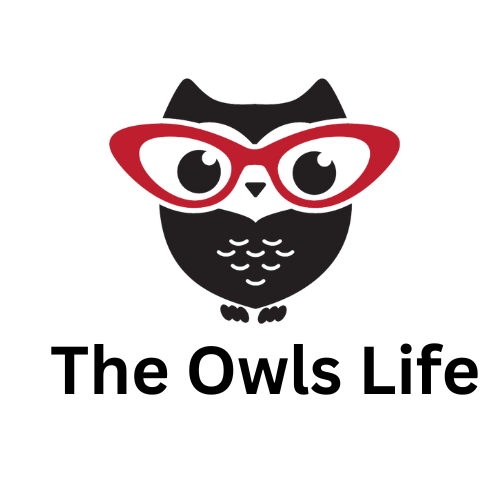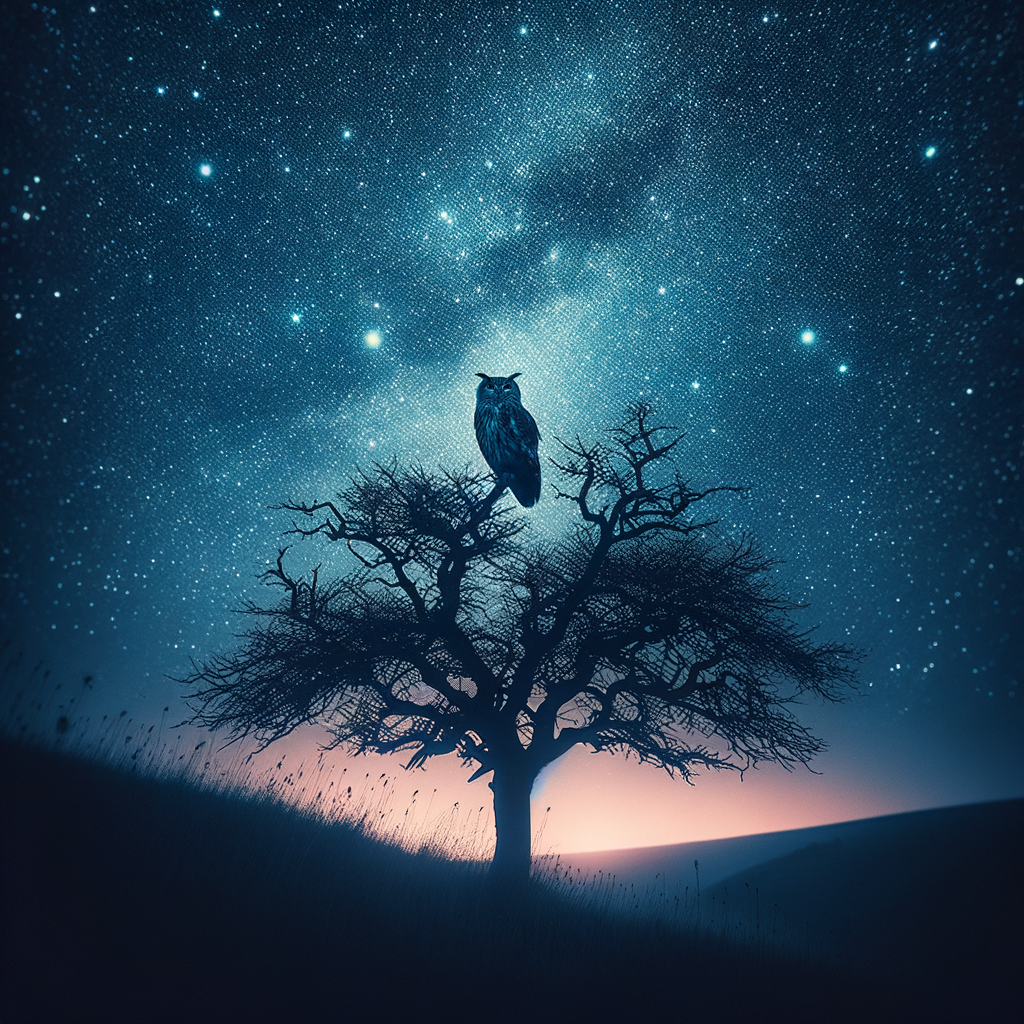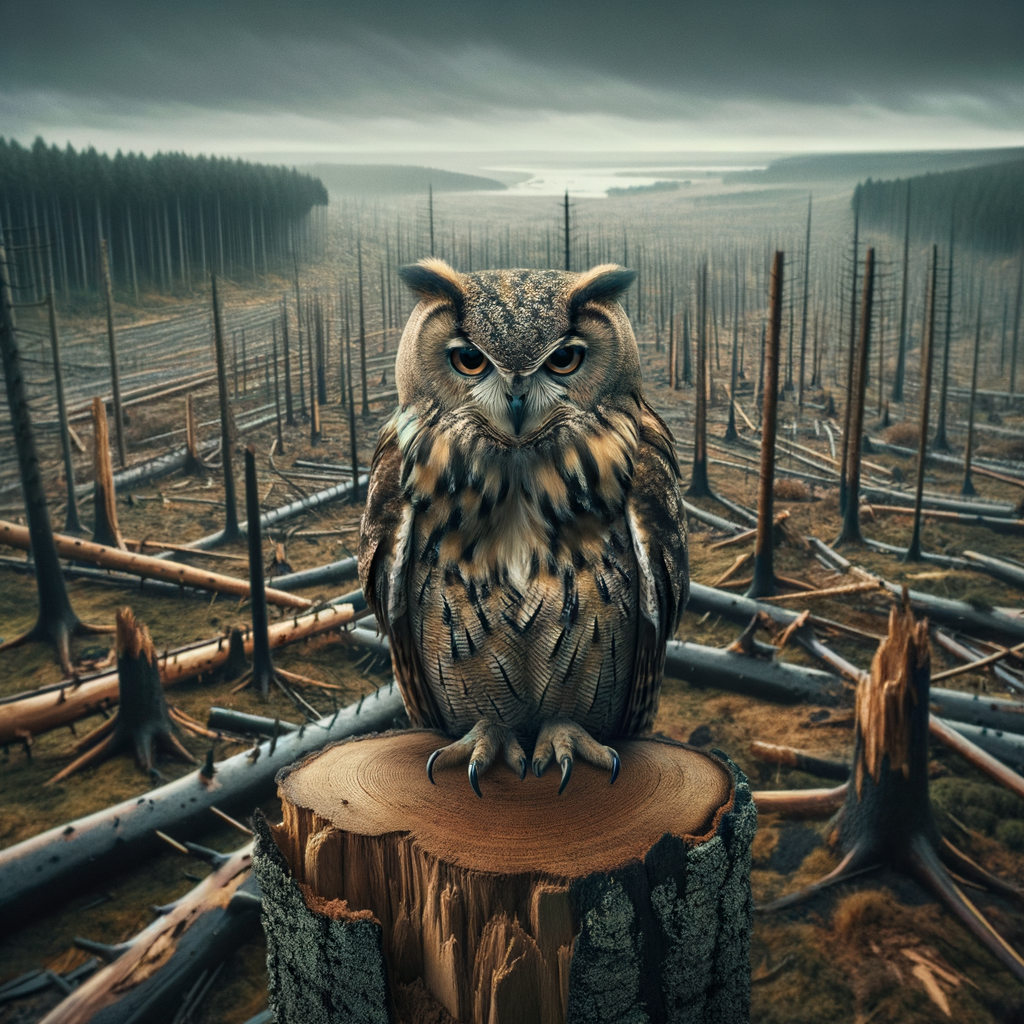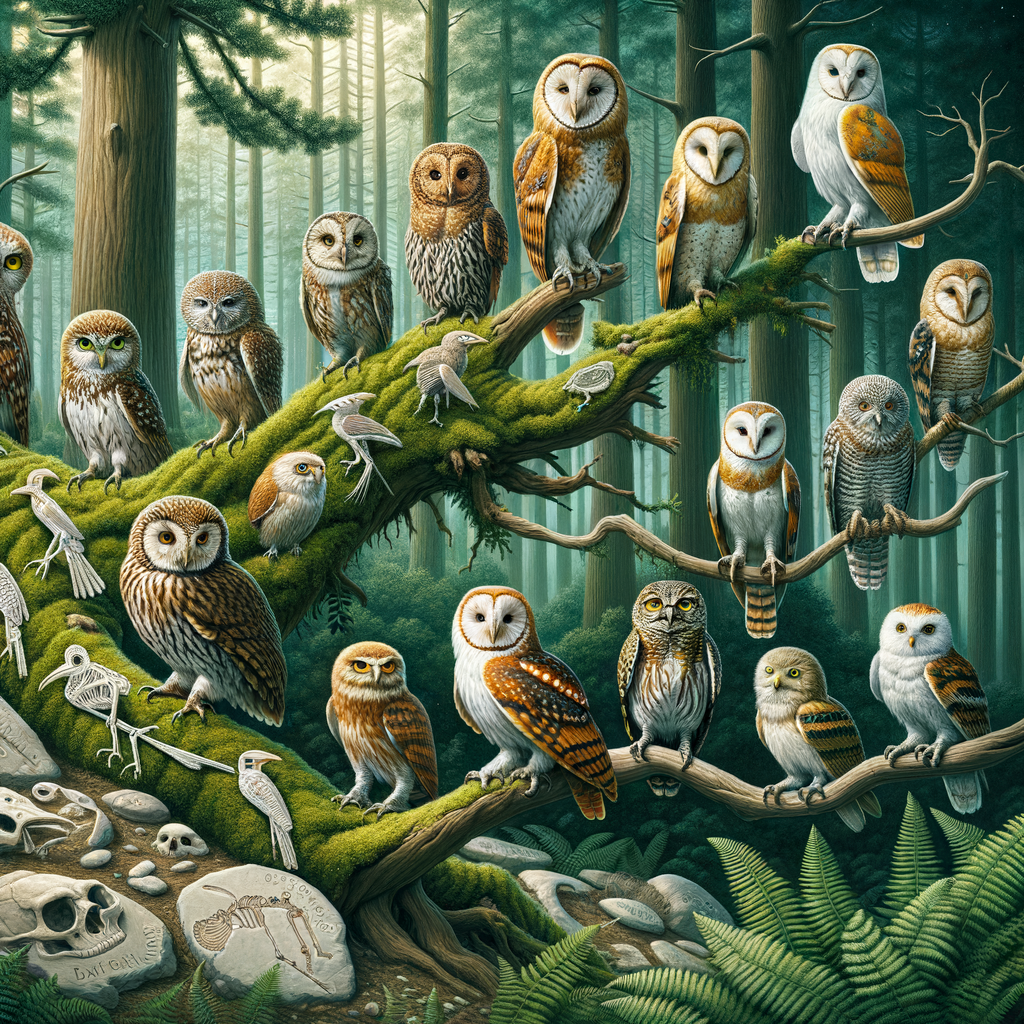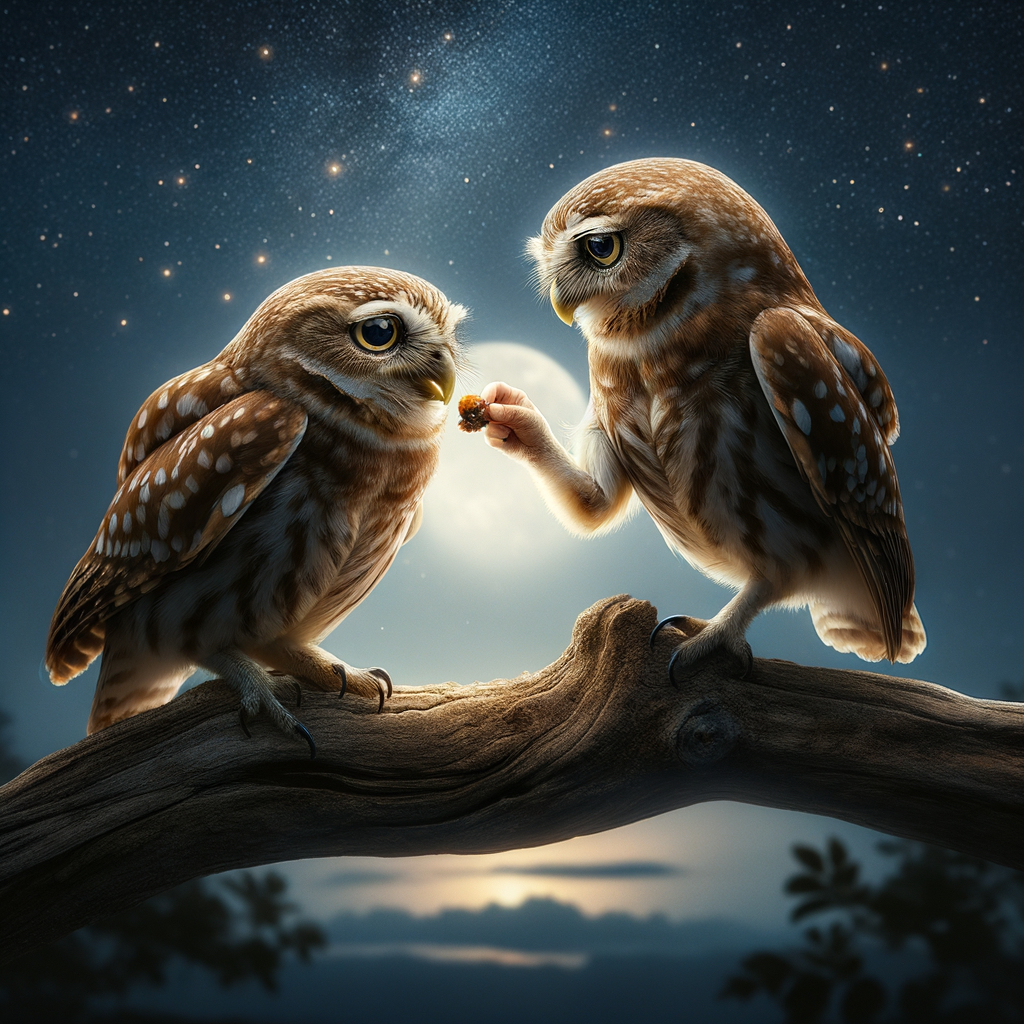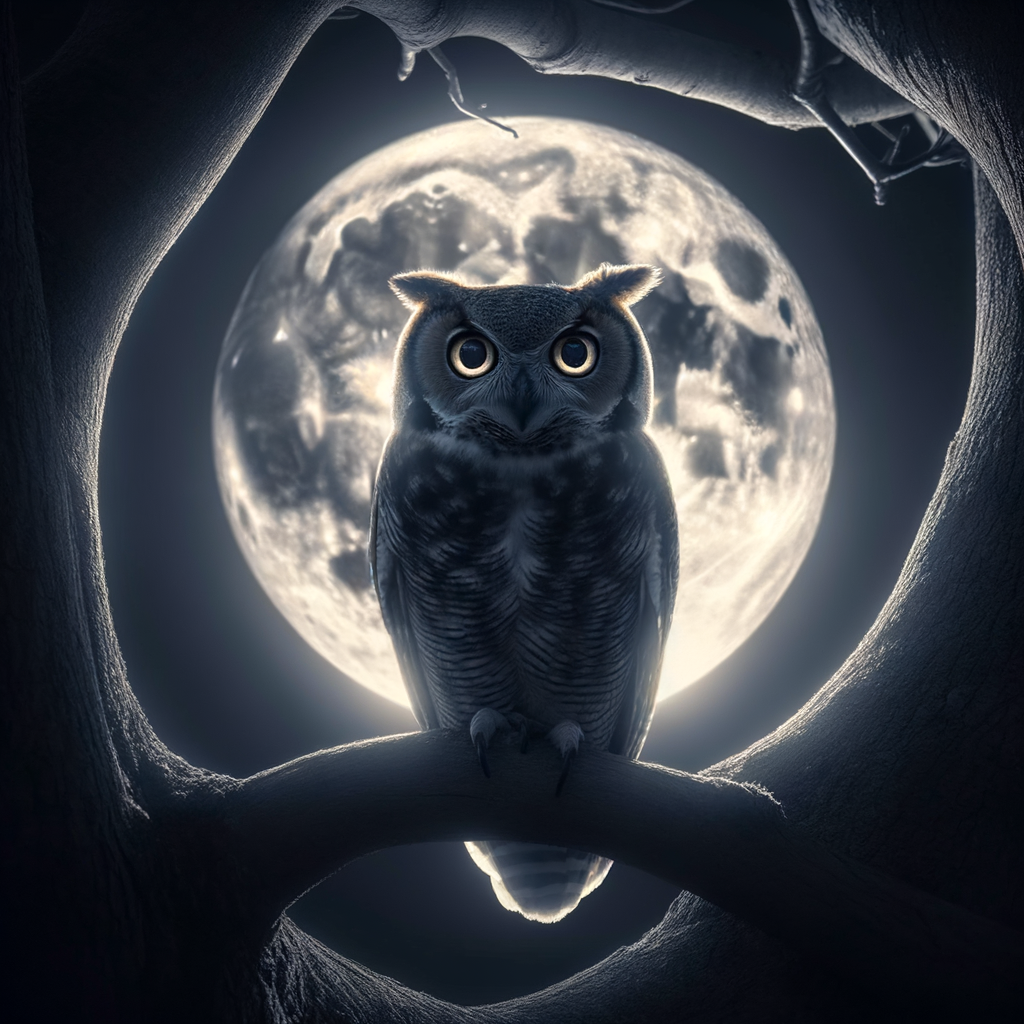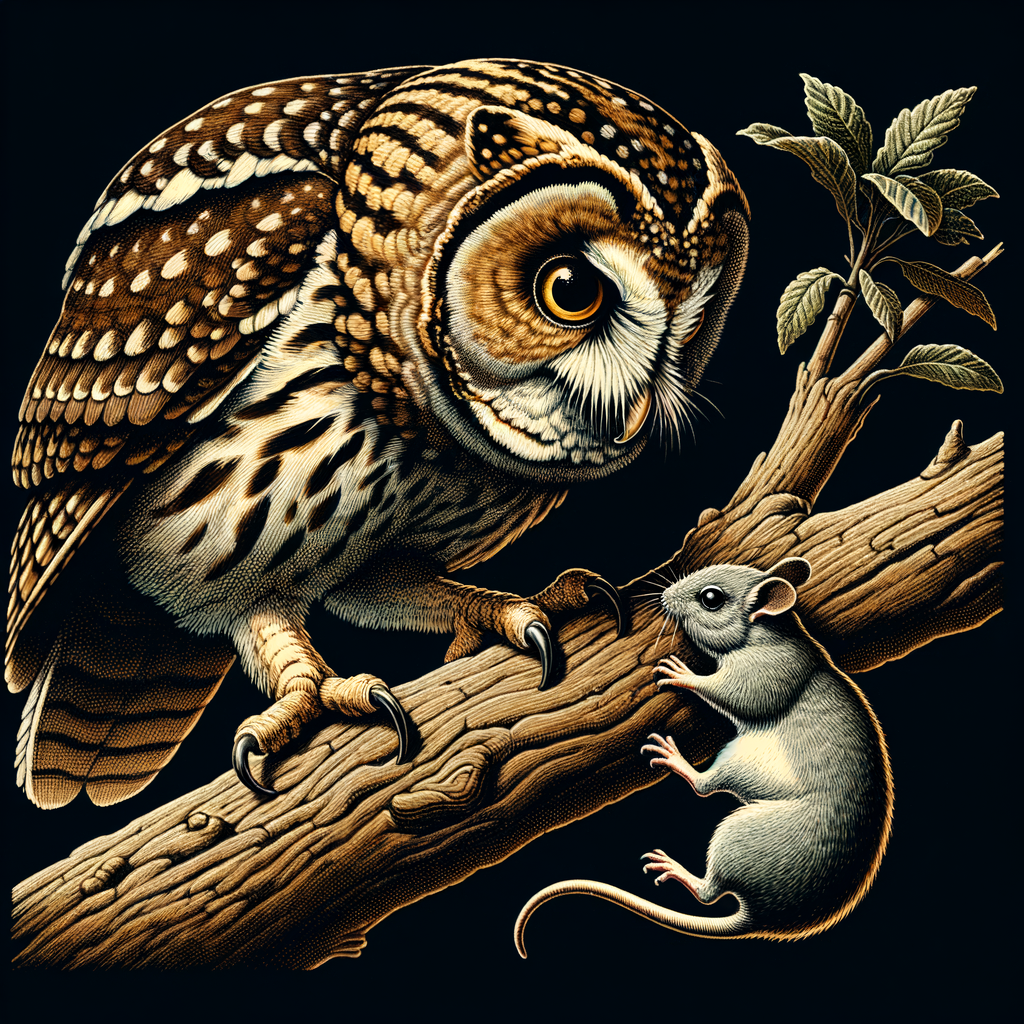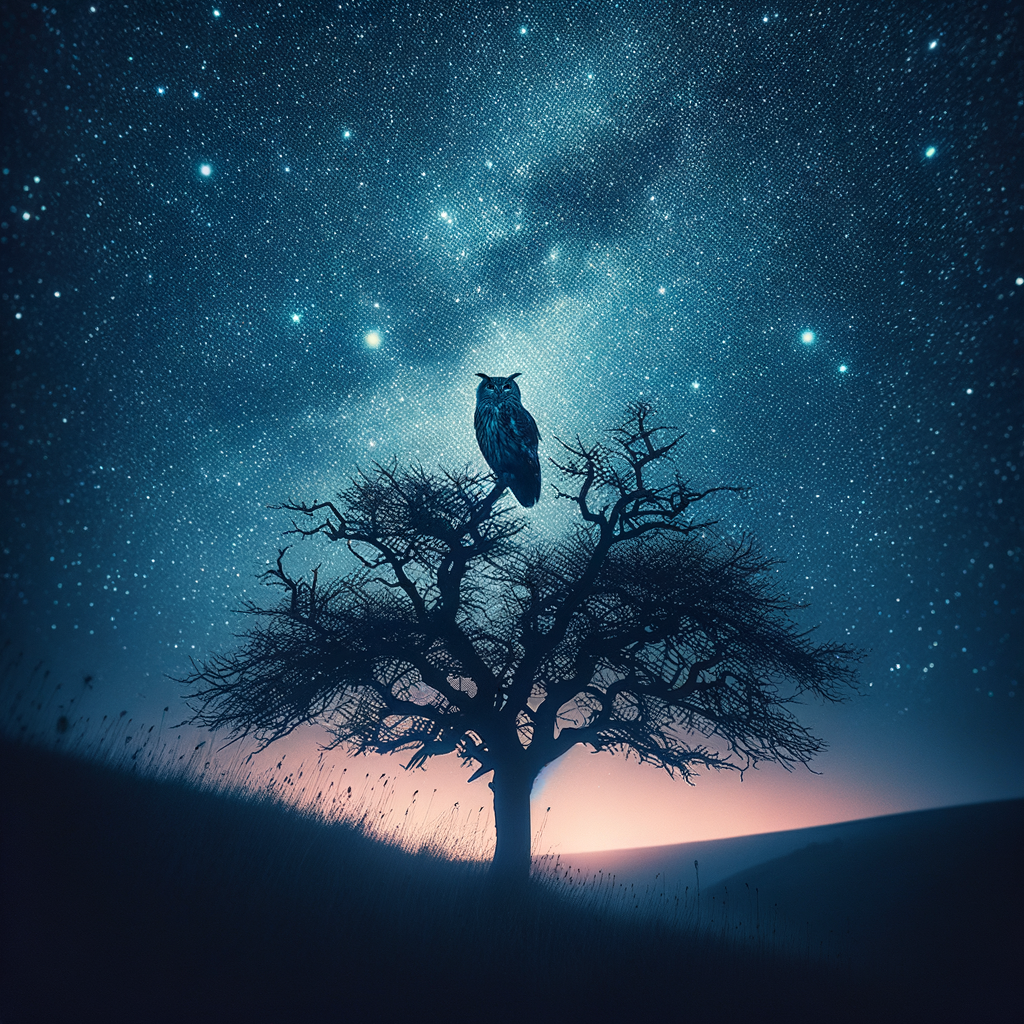
Introduction
-
Overview of the importance of dark skies for owl conservation:
Owls are amazing nighttime hunters. They need dark skies to find food and stay safe. When the sky is dark, owls can see better and hear small noises. This helps them catch prey like mice and insects. Dark skies also help owls avoid dangers like predators and cars.
-
Introduction to the concept of light pollution:
Happens when too much artificial light brightens the night sky. This can come from streetlights, buildings, and cars. Light pollution makes it hard for owls and other animals to see and hunt. It also confuses them and can change their natural behaviors. Understanding light pollution is important to help protect owls and other nocturnal animals.
Dark Skies Benefits for Owls
Owl Behavior and Dark Skies
- How dark skies affect owl behavior:Owls are nocturnal creatures, meaning they are active at night. Dark skies help them hunt and navigate better. Light pollution can confuse them and make it hard to find food. Owls rely on their keen eyesight and hearing, which work best in natural darkness.
- Examples of owl species that benefit from dark skies:Many owl species thrive in dark environments. Here are a few:
- Barn Owl: Known for its heart-shaped face, the Barn Owl hunts small mammals in open fields. Dark skies help it spot prey easily.
- Great Horned Owl: This large owl uses its excellent night vision to hunt in forests and deserts. Less light pollution means better hunting conditions.
- Eastern Screech Owl: This small owl blends into its woodland habitat. Dark skies help it stay hidden from predators and find food.
Dark Sky Initiatives for Owls
-
Case Study: Successful Dark Sky Initiatives
One successful dark sky initiative took place in Flagstaff, Arizona. This city is known for its clear night skies. In 2001, Flagstaff became the first International Dark Sky City. This means they work hard to reduce light pollution.
Flagstaff’s efforts included using special streetlights. These lights point downwards, reducing the light that goes up into the sky. This helps owls and other nocturnal animals. They can hunt and move around more easily.
Another example is in the UK. The South Downs National Park was named a Dark Sky Reserve in 2016. They also use special lighting and educate people about the importance of dark skies.
-
How to Support Local Dark Sky Initiatives
There are many ways you can help support dark sky initiatives in your area:
- Use Outdoor Lighting Wisely: Install lights that point downwards. Use motion sensors so lights are only on when needed.
- Join Local Groups: Many areas have groups that work to reduce light pollution. Join them to learn and help out.
- Spread the Word: Talk to your friends and family about the importance of dark skies. Share information on social media.
- Support Legislation: Encourage local leaders to pass laws that reduce light pollution.
By taking these steps, you can help create a better environment for owls and other nocturnal wildlife.
Light Pollution Impact on Owls
Effects of Light Pollution on Owl Habitats
- How light pollution disrupts owl habitats:Owls need darkness to see their prey. When there is too much light, it confuses them. This can make it difficult for owls to find food.
Light pollution also affects where owls live. Owls like to nest in dark, quiet places. Too much light can scare them away. This means they have fewer places to live and raise their young.
- Case study: Impact of urban light pollution on owls:In cities, there is a lot of light at night. This is called urban light pollution. A study in New York City showed that owls are less active in areas with bright lights. They do not hunt as much and have fewer babies.
Another study in London found that owls moved away from bright areas. They went to parks and other dark places. This shows that light pollution can push owls out of their homes.
Reducing Light Pollution for Owls
- Practical steps to reduce light pollution
- Use outdoor lights only when needed.
- Install motion sensors to turn lights on and off automatically.
- Choose lights with lower brightness.
- Use shields to direct light downwards.
- Turn off unnecessary indoor lights at night.
-
Benefits of reducing light pollution for owl conservation
- Better Hunting: Owls hunt at night. Less light helps them catch prey more easily.
- Improved Breeding: Owls need dark environments for nesting and raising their young.
- Healthier Ecosystems: Darker skies help maintain the natural balance of wildlife.
According to a study by the International Dark-Sky Association, areas with reduced light pollution see a significant improvement in owl activity and health. Learn more about light pollution.
| Action | Benefit |
|---|---|
| Use outdoor lights only when needed | Reduces unnecessary light exposure |
| Install motion sensors | Automatically controls light usage |
| Choose lower brightness lights | Minimizes light pollution |
| Use shields to direct light | Focuses light where needed |
| Turn off unnecessary indoor lights | Conserves energy and reduces light |
Nocturnal Wildlife Conservation
Importance of Dark Skies for Nocturnal Wildlife
- Role of dark skies in nocturnal wildlife conservation:Dark skies are essential for nocturnal animals. They help these creatures hunt, navigate, and communicate. For example, owls rely on the darkness to catch their prey. Without dark skies, their survival becomes harder.
- Impact of light pollution on other nocturnal species:Light pollution affects many nocturnal animals. It can confuse them and disrupt their natural behaviors. For instance, sea turtles use the moonlight to find the ocean. Bright lights from cities can lead them in the wrong direction.
| Effect of Dark Skies | Impact of Light Pollution |
|---|---|
| Helps nocturnal animals hunt and navigate | Disrupts natural behaviors and habitats |
| Supports healthy ecosystems | Causes confusion and disorientation |
| Promotes biodiversity | Leads to habitat loss |
According to Wikipedia, light pollution is a growing problem. It affects not only wildlife but also humans. By reducing light pollution, we can help protect nocturnal animals and their habitats.
Owl Conservation Strategies
- Current strategies for owl conservationOne key strategy is habitat preservation. This means keeping forests and fields safe from destruction. Another strategy is reducing pesticide use. Pesticides can harm owls by poisoning their food sources.
Some conservationists also work on breeding programs. These programs help increase owl populations by raising owlets in safe environments before releasing them into the wild. Education is another important strategy. Teaching people about owls and their needs can help protect these birds for the future.
Strategy Description Habitat Preservation Protecting forests and fields from destruction. Reducing Pesticides Minimizing the use of harmful chemicals. Breeding Programs Raising owlets in safe environments before releasing them. Education Teaching people about owls and their needs. -
How these strategies incorporate dark skies
Dark skies are essential for owl conservation. Owls are nocturnal, meaning they are active at night. Light pollution can confuse them and make hunting difficult. Conservation strategies now include efforts to reduce light pollution.
For example, some areas have “dark sky reserves.” These places limit artificial light to help nocturnal animals, including owls. Communities can also use shielded lighting. This type of lighting directs light downwards, reducing skyglow and helping owls see better at night.
By incorporating dark skies into conservation plans, we can create safer environments for owls to thrive.
Protecting Owl Environments
Dark Skies and Owl Survival
- Correlation between dark skies and owl survival rates:Owls hunt at night and need darkness to see their prey. Studies show that areas with less light pollution have higher owl survival rates. For example, a study in light pollution found that owl populations thrive in dark environments.
- Importance of habitat preservation for owl survival:Preserving forests and open fields helps owls find food and shelter. For instance, the Spotted Owl relies on old-growth forests. Protecting these habitats is key to their survival.
Future of Owl Conservation
-
- Emerging trends in owl conservation
Owl conservation is evolving with new methods and technologies. Scientists are using GPS tracking to monitor owl movements. This helps in understanding their migration patterns. Another trend is the use of drones. Drones help in surveying owl habitats without disturbing them.
Community involvement is also growing. People are building owl boxes to provide safe nesting places. Education programs teach kids about the importance of owls. These efforts are crucial for owl conservation.
-
- Role of dark skies in future owl conservation efforts
Owls hunt at night and need darkness to see their prey. Light pollution makes it hard for them to hunt. Future conservation plans include creating dark sky reserves. These are areas where artificial light is kept to a minimum.
Dark sky initiatives also help other nocturnal animals. By reducing light pollution, we can protect entire ecosystems. This is a win-win for wildlife and humans.
| Conservation Method | Benefit |
|---|---|
| GPS Tracking | Monitors owl movements |
| Drones | Surveys habitats without disturbance |
| Owl Boxes | Provides safe nesting places |
| Dark Sky Reserves | Reduces light pollution |
Conclusion
-
- Recap of the Importance of Dark Skies for Owl Conservation
Dark skies are crucial for owls. They help owls hunt, navigate, and communicate. Without dark skies, owls struggle to find food and avoid dangers. This can hurt their populations.
-
- Final Thoughts on the Future of Owl Conservation
Protecting owls means protecting their habitats. We need to reduce light pollution and keep our skies dark. This will help owls and other nocturnal animals thrive. Together, we can make a difference for these amazing creatures.
